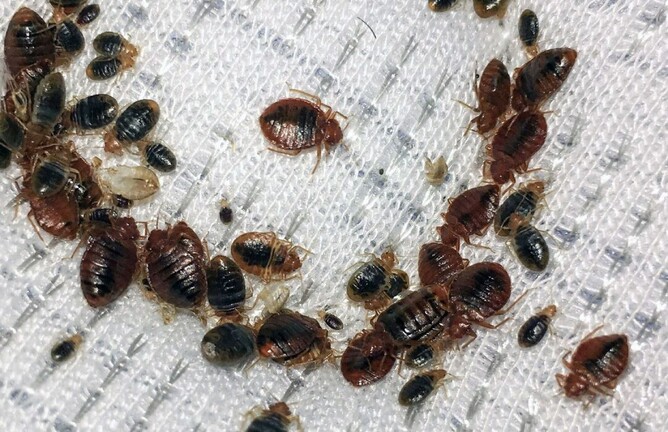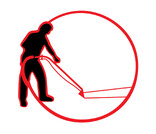Everyone has heard of bed bugs, but if you haven’t ever had the displeasure of experiencing a bed bug infestation in your home, you may not really know that much about them. You probably have a vision in your mind about what they’re like and what happens when they invade your house, but if you haven’t studied these pests or learned any factual information about them, many of your ideas about them could be wrong.
Gaining some knowledge about bed bugs can be helpful both in the event you experience a bed bug infestation, and generally so that you can know how to prevent them. Knowledge often helps dispel unnecessary fears while also providing you with the information you need to make wise decisions about how to get rid of the infestation. If you want to know about all the problems bed bugs can bring to your home, you’ve come to the right place.
What Are Bed Bugs?
Bed bugs are parasites. Although we often think of a parasite as something that is constantly attached to its host or something that resides within its host, the broader definition of a parasite is that it’s an organism that gets its food at the expense of a host. Because bed bugs require blood meals to survive, they are considered parasites.
Unlike many parasites, bed bugs do not constantly live on their host. Instead, they spend most of their time hidden in out of the way locations where they’re unlikely to be noticed. Although they’re not exclusively nocturnal, they usually feed at night because it is easier to do so when their food source is asleep. They get their name from the fact that they are often found in beds because that’s where their favorite hosts - humans - are usually most easily accessible to snack upon.
Adult bed bugs are about the size of an apple seed. When unfed, they have broad, flat bodies that are oval shaped. Their heads are small and have a pair of antennae that stick straight out to both sides. Like all insects, they have six legs. Adult bed bugs are brown and become a reddish brown color after feeding. Their bodies also swell up and become engorged and elongated after feeding.
Adult bed bugs are easily seen with the naked eye. However, because they are good at hiding and spend most of their time out of sight, if you think you have a bed bug infestation, you will have to look for them in order to find them. They are unlikely to be out in the open where you’ll see them accidentally.
Nymph bed bugs go through five stages of development before becoming adults. They start off very small and very light in color, almost a translucent white. As they go through each stage of development, they become progressively larger and darker, eventually reaching maturity. It’s possible to identify nymph bed bugs when looking for them, but they are harder to spot than adult bed bugs.
Bed bug eggs are tiny, only about a millimeter in size, and a milky white color. These are very difficult to spot with the naked eye, but not impossible. A female bed bug lays anywhere from one to five eggs a day, and in the proper conditions, these eggs can hatch in about a week’s time.
How Bed Bugs Get Into Your Home
Bed bugs are not like other bugs in their habits and the way they move around. Most pest infestations begin when pests living outside your house on your lawn or in the nearby woods get close to your house and find a way inside through a crack or gap in your walls. Although these pest infestations are annoying and potentially harmful in one way or another, they are also preventable if you know what to do.
Bed bugs do not operate in the same way as other pests, which makes completely preventing a bed bug infestation next to impossible. They do not live on the outskirts of your property, moving ever closer until they get inside. Instead, they can be found just about anywhere people congregate.
Bed bugs love people, and for good reason since we are their main food supply. They also love warm temperatures and are at their most active when it’s hot outside. However, they can survive in very cold temperatures for short periods of time which allows them to move about and survive even in the winter.
The way bed bugs move from place to place is by hitchhiking. Of course, no one knows they’re hitchhiking and no one willingly gives them a ride. Even so, they still manage to hitch a ride with people without their knowledge on a regular basis. They’ll crawl onto a pant leg, into a bag or box, or into luggage, and hide away until they decide it’s time to crawl back off in whatever new location they find themselves.
Because of the way they move around, it’s possible for your home to end up with a bed bug infestation any time you go out into a public location. Riding the city bus, visiting the local library, or staying at a hotel while on vacation are all ways to end up bringing bed bugs home with you. Having guests visit, especially overnight, can also lead to a bed bug infestation.
Of course, none of these events are things that you can or should stop doing. Going out in public is part of life, going on vacation is a wonderful treat, and having friends or family stay in your house is one of life’s joys. Instead of trying to change the way you live to avoid a bed bug infestation, knowing how they could infest your home simply provides you with the knowledge you need to be more aware that an infestation could happen.
This, in turn, will allow you to be more vigilant in checking the items that come into your house and checking areas of your house for signs of bed bugs. By catching a bed bug infestation in its early stages, you can save yourself much of the stress that goes along with trying to get rid of a large infestation.
Health Problems Caused By Bed Bugs
For most people, just the thought of a bed bug infestation is enough to make them uncomfortable. However, knowing what problems bed bugs cause is helpful not only because it can potentially help you identify an infestation earlier, but also because it might alleviate some of your fears.
The good news is that bed bugs are not known to spread diseases through their bites. Although it’s possible something will be discovered in the future, as of now there is no concrete evidence that they do. Unfortunately though, that doesn’t make them harmless.
Bed bugs still cause a number of health problems for their hosts. The first you are already aware of: they bite. In order to eat, bed bugs have to bite their hosts to get to their blood. These bites result in red bumps that can itch for several days. Typically, bed bugs will leave several bites behind in a linear pattern on the trunk of the body.
Bed bug bites may be an annoyance, but they aren’t typically a cause for concern. However, if scratched open, these irritated bites can result in a secondary infection where the skin gets opened from excessive scratching. This may require topical ointments to heal or, in worst case scenarios, they may require a visit to the doctor.
In the case of a large bed bug infestation or a bed bug infestation that has been around for a long time, too many bed bug bites could cause anemia in a host. Although extremely rare, this is a possibility.
In addition to the physical health problems that can occur with a bed bug infestation, it’s also important to take the mental health problems that can occur with a bed bug presence into account. Discovering a bed bug infestation in your home is a serious cause of stress. Many people who experience bed bug infestations report having trouble with insomnia as they are too nervous and stressed to sleep. Stress, coupled with a lack of sleep, quickly takes its toll on all areas of your life.
Other Problems Caused By Bed Bugs
There are other problems besides health concerns to consider when bed bugs infest your home. First, they can leave a mess behind. Bed bugs often leave tiny drops of blood on your sheets and blankets when they finish a meal. They also leave fecal matter behind, as well as egg shells and casings when they shed their skin as they grow. Furthermore, infestations that grow very large start to smell. A large bed bug infestation gives off a musty smell, similar to a pile of wet towels that has been left out too long.
Of course, the major problems with a bed bug infestation is that they are nearly impossible to prevent and they are extremely difficult to get rid of once they arrive. Because they can get on you anytime you leave your house, there’s no practical way to avoid an infestation that doesn’t involve searching every person and item before it comes into your house.
Once you get an infestation, you might be tempted to try to get rid of them on your own by washing your bedding, vacuuming your mattress, or even spraying some treatment around that you bought at the store. However, none of these methods are likely to work. Even if you manage to get rid of some of the bed bugs in your house, you’re unlikely to get them all. Some eggs will be left behind to hatch. Some bed bugs might sense danger and move deep within your walls to wait it out. They can go several months without eating, so they’ll survive just fine in the intervening time.
What To Do If You Think You Have Bed Bugs In Your Home
If you find bed bugs in your house, or have noticed signs that point to their presence, don’t try to get rid of them yourself. Instead, make the call to Dan's Property Services Ltd. We have years of experience treating pest problems of all kinds and are experts in bed bug control.
Our treatments are effective at eliminating bed bug infestations.
If you think bed bugs are in your Auckland home, the sooner you contact Dan's Property Services Ltd, the sooner you can sleep well at night in the knowledge that you won’t wake up covered in bug bites. For bed bug control that works, contact Dan's Property Services Ltd today.


